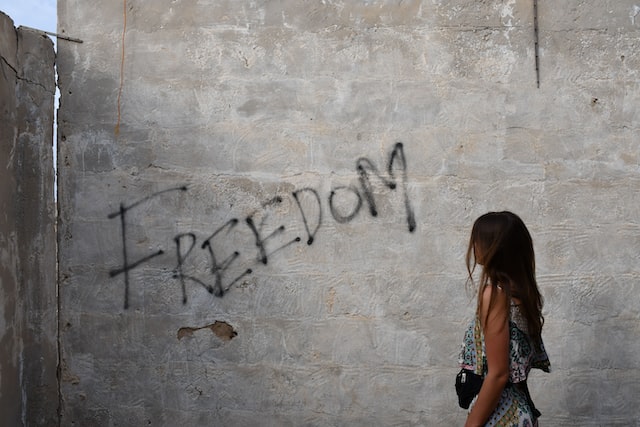 |
| Photo by Hanna Zhyhar on Unsplash |
I am well aware that I live in a democracy. At least, I live in a country that likes to refer to itself as a democracy. Voting is part of what it means to live in a democracy. I have few complaints about voting and turn up to do it when asked. And yet, the idea of voting on someone else's rights has always bothered me.
Reproductive Rights and Same-Sex Marriage
I'm a man. What right do I have to vote on whether women should have access to abortion? I am pro-choice, and I would vote for improved abortion access. But why is this an issue at all? Why should reproductive rights ever depend on my vote?
I'm happy about the news out of Kansas too, but why was access to abortion up for a vote? If you are a woman living in Kansas, why should your neighbors have the right to make health care decisions for you? They shouldn't. That should be up to you and your doctor.
I am straight. What right do I have to vote on same-sex marriage? I support this right too, but the thought of voting on someone else's marriage seems strange. Someone's right to marry who they want does not need my approval.
When it comes to our rights, the default should be that we have the right to do what we want. There are cases when it is necessary to restrict our rights for public safety. But restricting our rights should be rare and well-justified.
Voting for "Sin"
Some states ask voters to decide various ballot measures in almost every election. Others do so rarely. The state I'm currently living in has no more than one of these on a ballot every few years. But a couple of those that have made it onto our ballots have been quite interesting.
I voted to approve medical marijuana. This measure passed, but we still don't have it. Our Republican legislature opposes it and isn't interested in "the will of the people." But that's not the point of this post. The point is to highlight the absurdity of putting others' rights on the ballot. Doesn't "medical marijuana" entail medical uses? I'm not a medical doctor. Why do I have a say in someone else's health care?
Several years ago, I voted to legalize alcohol in the county where I live. This measure failed because of the local Southern Baptist majority. They regard alcohol as sinful and are eager to legislate their religious beliefs. The outcome is that Prohibition continues here. Stores and restaurants may not sell alcohol, and adults may not have it in their possession.
Our Rights Don't Belong on Anybody's Ballot
Why would we put our rights or anyone else's rights on the ballot? Doesn't that seem like an odd move? Should my neighbors vote on which restaurants I can visit? Should I vote on whether they can attend church? Putting our rights on the ballot demonstrates that we do not value freedom as much as we like to claim.
I don't want you voting on my rights, and you don't want me voting on your rights. Even if you think I would support most of the rights you value, why take the chance? Why are your rights any of my business?
One of the benefits of enshrining certain rights in federal law is to take this nonsense off the table. Consider racial discrimination. We don't ask people to vote on whether a restaurant should be able to refuse to serve someone based on their race. It seems like we need to do more of this to protect those stuck in red states that do not value freedom.